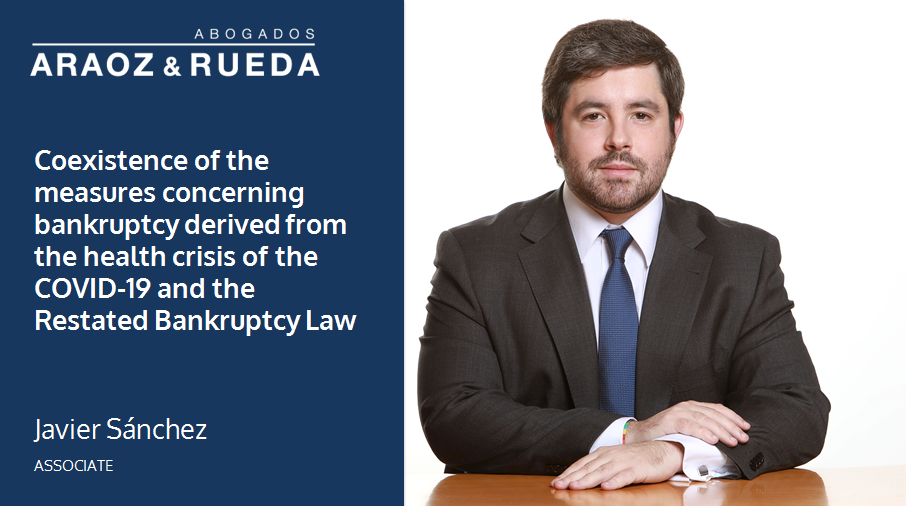Since the declaration of the state of alarm on 14 March, a series of economic and social measures have been adopted to tackle the health crisis resulting from the COVID-19, which reach several areas, including bankruptcy.
In addition, the government have finally completed the task pending since 2015 of producing the restatement of Insolvency Law (currently in force) by passing the Royal Legislative Decree 1/2020, of May 5 (RIL). The numerous amendments, changes and case law that this regulation had undergone had led to great instability and difficulty in its understanding and interpretation. Notwithstanding, the RIL will entry into force on 1 September 2020.
The insolvency measures adopted during the crisis of the COVID-19 and the RIL are a key tool for the conservation and economic continuity of the businesses and employment.
Royal Decree Law 16/2020, of 28 April, on procedural and organisational measures to address the COVID-19 in the area of the Justice Administration amends and develops the temporary and extraordinary measures introduced by RDL 8/2020 and RDL 11/2020. In insolvency area, in order to ease the situation of debtors in compliance with an approved composition arrangement or refinancing agreement, the aim is to promote the renegotiation with creditors (regardless of the debtor’s default or possible default) of the composition arrangement in execution and the approved financing agreements.
Thus, the debtor may submit a proposal for the amendment of an agreement in execution during the year following the declaration of the state of alarm. The filing will follow the rules of approval of the original arrangement and new claims arising during execution stage will not be affected, unless the creditors vote in favour of or adhere to the proposed amendment. During the same time period, the debtor may notify the competent court of the commencement of negotiations to amend the approved refinancing agreements. It will not be necessary to wait one year from the application for approval for the debtor to start negotiations with its creditors to amend the agreement.
In the event of breach of composition arrangement or refinancing agreement, a three-month time period and one-month time period, respectively, after six months from the declaration of the state of alarm is provided for, so that the debtor may submit a proposal for the amendment of the composition arrangement or refinancing agreement, before the court admits the applications for a declaration of default.
Once the debtor is aware of a default under the composition arrangement, it is not obliged to request the liquidation of the assets, provided that it submits a proposal for amendment that be admitted for processing during the year following the declaration of the state of alarm. This delays a worse case scenario for the debtor, allowing a new negotiation with its creditors while preserving business continuity.
Until 31 December 2020 the debtor will not be obliged to apply for a declaration of insolvency and the courts will not accept applications for necessary bankruptcies, with preference given to voluntary bankruptcies (even if they are later). Likewise, if the debtor has started negotiations with his creditors (refinancing, out-of-court settlement or accession to an advance proposal for a settlement) before 30 September 2020, the general rules will apply.
These measures will coexist in their application over time with the current Spanish Insolvency Law and the RIL, although each rule in its respective fields and without the RIL repealing the former.
The RIL aims to reorder, clarify and harmonise the regulations in force, without prejudice to the pending transposition of Directive (EU) 2019/1023. Special mention should be made of the development in pre-insolvency matters in Book II in relation to the notification of the commencement of negotiations with creditors in accordance with Article 5 bis of the Spanish Insolvency Law, refinancing agreements, out-of-court payment agreements and consecutive bankruptcy.
Given the current circumstances, it is foreseeable that both the RIL and the temporary and extraordinary measures will be tested in the near future.
[Article originally published in the June issue of Iberian Lawyer]
Associate


